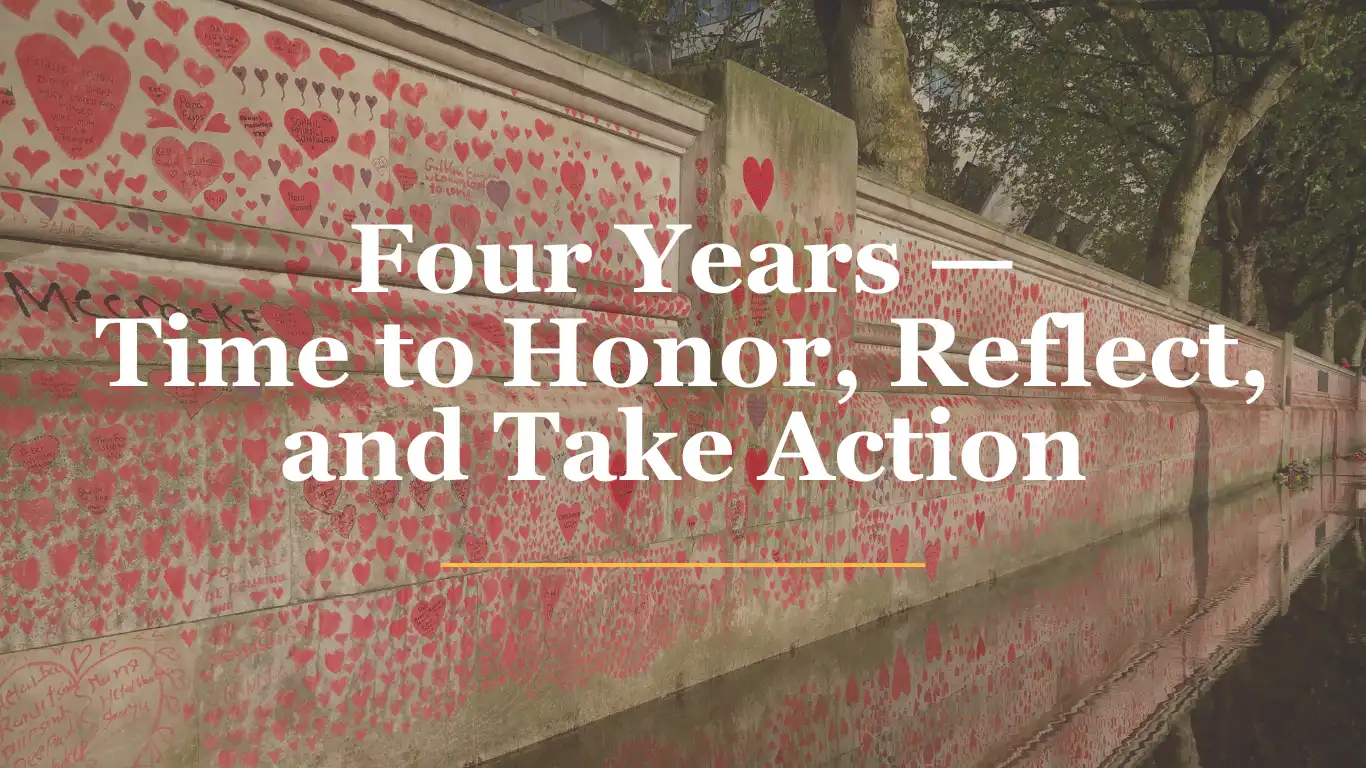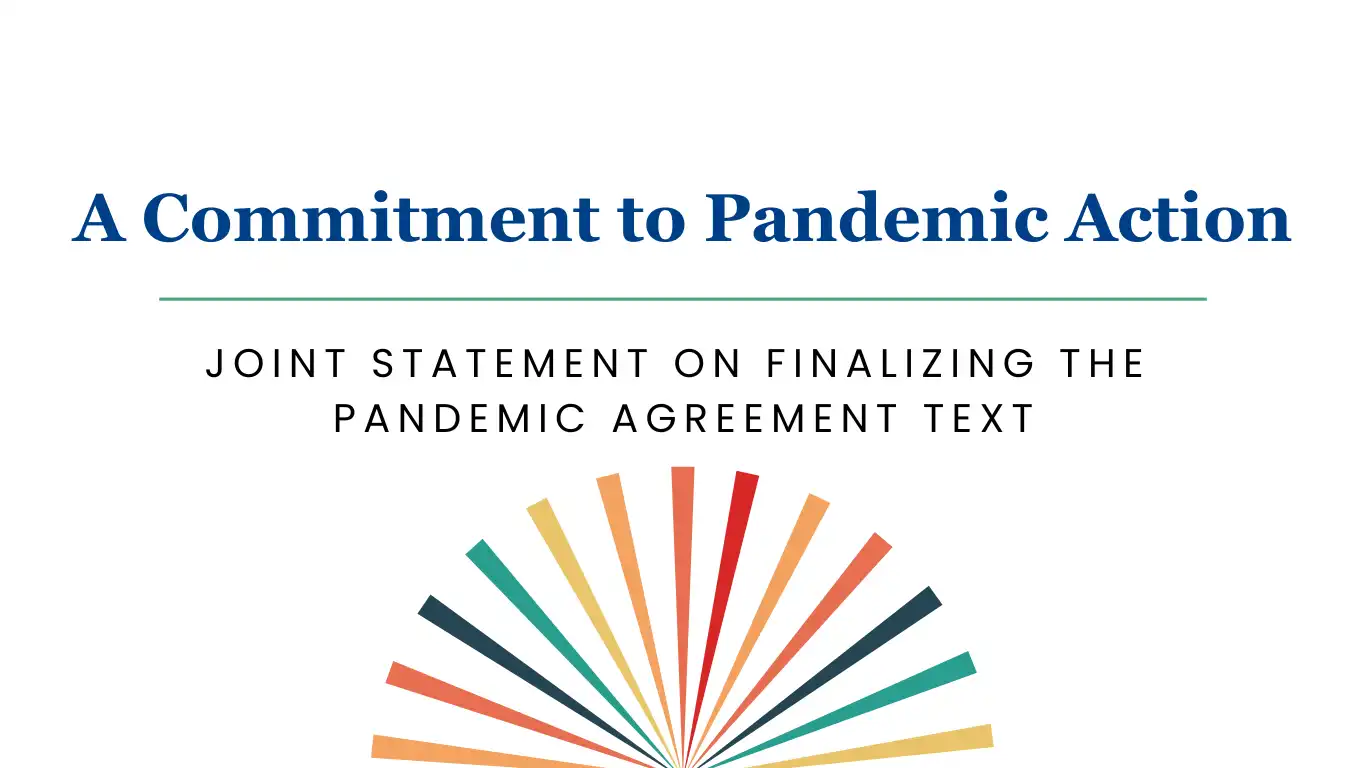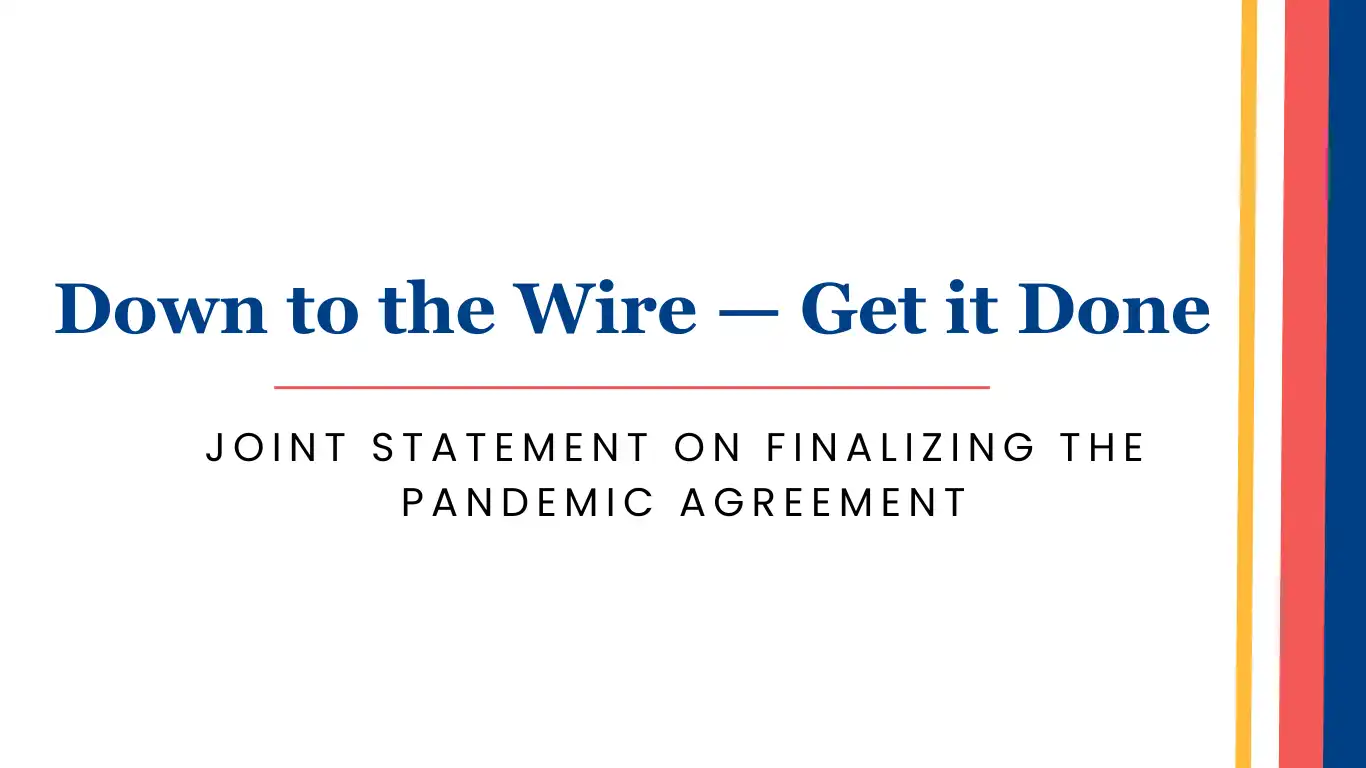At the 11 March 2020 WHO media briefing four years ago when Dr. Tedros declared the COVID-19 pandemic, he said: “We cannot say this loudly enough, or clearly enough, or often enough: all countries can still change the course of this pandemic.”
The fact that countries can change the course of pandemics is the reason why PAN exists. Not only can a country’s course of actions during pandemics make a difference, but by seeking to stop outbreaks from becoming pandemics through effective surveillance and containment we can limit zoonotic spillover and stop outbreaks occurring at all.
As the world reflects on those who lost their lives, including many health care workers that put themselves in the line of duty, we have an opportunity to honour those losses — lives, livelihoods, mental health, time, social connection, and development — by working together to take action to make sure every community, every country, and the world is better prepared for future pandemic threats.
We need to memorialise the pandemic and other epidemics around the world that — with the right decisions and attention — could go differently next time.
First, we need to memorialise the pandemic and other epidemics around the world that — with the right decisions and attention — could go differently next time. Just as our partners at Marked By Covid said at their virtual vigil: “Creating permanent space for mourning, remembrance, and education is the first step in ensuring that we are better prepared for the next crisis.” Similarly in the U.K., the Remembrance Day helped shine a light on the COVID memorial wall that emerged during the pandemic, with volunteers seeking government recognition for the spot to become an official memorial. We give these efforts our full support: we want to see every country and region honour the legacy of COVID and other epidemics that have deeply affected communities.
In summer 2021, my family and I were visiting friends in Thirsk, a small market town in North Yorkshire. A beautiful new-ish bench had been installed, the wrought iron painted a glossy black with beautiful white doves and red poppies honouring lives lost from that small town during the world wars. We need reminders that remember the health care workers that were on the pandemic’s front line and the lives lost from COVID-19.
Second, we want to see governments perform the ultimate act of remembrance by delivering a strong pandemic agreement that all countries sign through the Intergovernmental Negotiating Body (INB). While the world burns from climate change and is torn apart by devastating conflict, there is a multilateral process quietly going on in Geneva. This is a once-in-a-generation opportunity to deliver an agreement that provides structural change that addresses know-how and technology sharing, a COP-like process — as we have for climate change — to elevate pandemics to the level needed and deserved. There are civil society organisations making substantive demands of the process, but so far, civil society has not been able to get in the room — something we’re trying to change and build support for.
Third, leaders have a duty to honour our past by ensuring that we do not repeat it. We are at a critical point. Mis- and dis-information campaigns have been a deadly and profitable business (to the tune of millions of dollars.) This past year, vaccine hesitancy contributed to a 40x increase in measles cases across Europe, hundreds of diphtheria cases in Nigeria, and continued endemic cases of polio in Afghanistan and Pakistan. Without vaccines, it is possible that these outbreaks could become a pandemic.
PAN will work with partners to fight for better pandemic prevention, preparedness, and response for the most vulnerable — and we need funders, governments, scientists, and fellow civil society organisations to come together to deliver on this goal. Countries have the power to change the course of future pandemics — leaders have a responsibility to the people to take that path.
Additional resources
- An Alarming Rise in Measles Cases Is Being Driven By Low Vaccination Rates
- Day of Reflection 2024 (U.K.)
- Joint Piece: World Leaders’ Must-Do List in 2024: Next Steps to Secure Pandemic Financing
- National COVID Memorial (U.S.)
- Open Letter Calling on World Leaders to Show Long-view Leadership on Existential Threats
- Rampant COVID Poses New Challenges in the Fifth Year of the Pandemic
- Vaccine Hesitancy is One of The Greatest Threats to Global Health – and the Pandemic has Made it Worse



